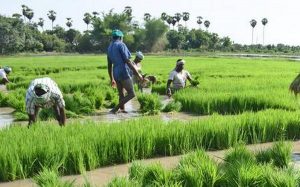Training Programme On Natural Farming:

The Ministry for Agriculture and Farmers Welfare has inaugurated the Comprehensive Training Programme on Natural Farming, organised by the National Institute of Agricultural Extension Management (MANAGE).
- MANAGE was established in 1987 as the Indian response to challenges of agricultural extension in a rapidly growing and diverse agriculture sector.
- In practical terms, extension means giving farmers knowledge of agronomic techniques and skills to improve their productivity, food security and livelihoods.
- Natural Farming can be defined as a “chemical- free farming and livestock based ”. Soundly grounded in agro-ecology, it is a diversified farming system that integrates crops, trees and livestock, allowing the optimum use of functional biodiversity.
- It holds the promise of enhancing farmers’ income while delivering many other benefits, such as restoration of soil fertility and environmental health, and mitigating and/or reducing greenhouse gas emissions.
- This farming approach was introduced by Masanobu Fukuoka, a Japanese farmer and philosopher, in his 1975 book The One-Straw Revolution.
- It builds on natural or ecological processes that exist in or around farms. Internationally, Natural Farming is considered a form of regenerative agriculture—a prominent strategy to save the planet.
- It has the potential to manage land practices and sequester carbon from the atmosphere in soils and plants, where it is actually useful instead of being detrimental.
- In India, Natural farming is promoted as Bhartiya Prakritik Krishi Paddhati Programme (BPKP) under Paramparagat Krishi Vikas Yojana (PKVY).
- BPKP is aimed at promoting traditional indigenous practices which reduce externally purchased inputs.
- Natural Farming, as the name suggests, is the art, practice and, increasingly, the science of working with nature to achieve much more with less.




